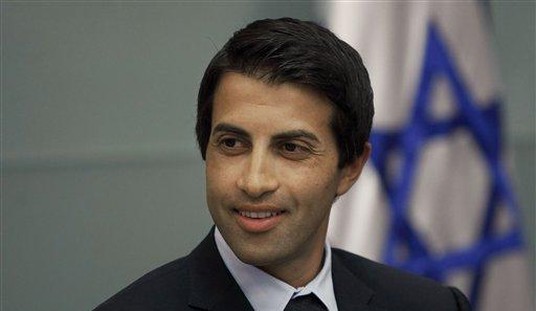[Note: No “spoilers” are referred to below. Given that there are still places (US, Australia, etc.) where the entire Season 3 of Downton Abbeyhas still not aired, I respectfully request that commenters avoid any Season 3 details that might spoil the fun for others.]
I was at a family gathering last night, and struck up a conversation with one of my sisters about the amazing success of Downton Abbey, which is now in its third season on PBS. I rarely watch TV, so I missed the first two seasons. However, through the magic of AppleTV, my wife and I purchased them online, and soon were swept up into the story.
For those of you who don’t know, Downton Abbey is set in the early 1900s, spanning the period from the sinking of the Titanic in 1912 though World War I and now into the 1920s.
This period could qualify as one of the most consequential in human history, not because it is the backdrop for a popular TV series, but because it was an inflection point for modernity. The accumulating effects of changes in science, industrial organization, communication, transportation, warfare, manufacturing, politics, and philosophy reached a critical mass and societies began changing rapidly. The final vestiges of the old order began crumbling, to be replaced with who knows what.
The underlying belief, the catalyst for all of these changes, was the notion of progress, that change drove the human race inexorably in the direction of something better: better science (relativity, 1905), better industrial organization (Carnegie, 1901), better warfare (fixed-wing aircraft, 1911), better manufacturing (Ford, 1908), better politics (Oregon System, 1902), better philosophy (Vienna Circle, 1908), and so on. Everywhere you looked, the human race was making progress.
But, as we now know, it didn’t work out quite so nicely. For every positive, there was also a negative: eugenics, monopoly trusts, mustard gas, alienated workers, fascism, and Leninism. Hundreds of millions died, and the world we certainly transformed. But did it progress? Let’s just say the result was somewhat less than what was promised.
Downton Abbey takes us into this period, and into the lives of the Crawley family and their servants on a grand estate in Yorkshire, England. We are given a birds-eye view of life amidst this turbulence, and audiences are eating it up.
What accounts for its popularity? Let’s see what its creative force says in a recent interview in the Wall Street Journal:
Julian Fellowes, the creator and writer of “Downton Abbey,” doesn’t take long to say what he thinks is the message of his smash television drama.
“I think the—well, not even the subtext, the supertext—of ‘Downton,’ ” he says not five minutes after we sit down for coffee Monday morning at the Savoy Hotel in central London, “is that it is possible for us all to get on, that we don’t have to be ranged in class warfare permanently—that for the general public, the fact that people are leading different lives with different economic realities and different expectations is perfectly cope-able with.
“If you can’t deal with that,” he continues, “then your life would be unlivable. And I think politicians try to encourage us to think in a hostile sense [of] people who have a different circumstance to our own. Which I find very unproductive and uncreative.”
The notion that “it is possible for us all to get on” sounds naïve and oblivious to facts c.2013. We live in a divided world, left vs. right, rich vs. poor, Jews vs. Palestinians, West vs. East, and so on – the battle lines are drawn, and the war is waging.
And yet Downton Abbey resonates with millions of people all over the globe.
I think it is popular because we hunger for community, and it shows how a real community looks. The people in Downton are all individuals, and treated seriously, regardless of class, status, gender, education, sexual orientation, or any other grouping that forms the basis of the modern identity, and its enablers in the professional grievance industry.
And yet those varied individuals comprise a community. They may fight, argue, backstab, insult, manipulate, or otherwise tear at each other, but they stay together. There is a bond that transcends their role and circumstance, a bond of mutual caring, of love. They don’t lose their individuality by being part of the community. But they do all seem “to get on,” even in the face of the great adversity, much of it self-induced.
Nassim Nicholas Taleb argues that the failures, disappointments, and frustrations of everyday life help make a social system antifragile. The Crawleys, for all of their travails, have survived. Actually, Taleb would say that because of all their travails they are more likely to survive. In fact, it is the very fragility of the individuals that enables the antifragility of the community. Their failures do not weaken them – with each setback they grow stronger as a family, a house, and a community.
But it’s not clear they are strong enough to survive what is coming. The world is changing all around them, and they are not insulated from those changes. World War I, the Irish independence movement, women’s suffrage, socialism – all of these massive forces are felt in England, and at Downton. Life will never be the same.
Or will it? Will Downton remain standing after the political tsunami washes over it, carrying the debris from other great estates in its wake? It’s not clear. But what is clear is that the loyal viewers of Downton Abbey hope it will survive, and it is that hope that I believe creates the greatest connection to the Downton Abbey audience.
Ours is a time of alienation bordering on despair; we feel disconnected from the past, and wonder if we can ever recapture the sense of community that was the driving force of America. Robert Nisbet described it thus in The Quest for Community:
I believe, then, that community is the essential context within which modern alienation has to be considered. Here I have reference not so much to a state of mind – although that is inevitably involved – as I do to the more concrete matters of the individual’s relation to social function and social authority. These, I would emphasize, are the two supports upon which alone community, in any reasonably precise sense, can exist and influence its members.
There are countless persons today for whom the massive changes of the past century have meant a dislocation of the contexts of the function: the extended family, neighborhood, apprenticeship, social class, and parish. Historically, these relationships had both depth and inclusiveness in individual life because they themselves had functional significance; because, however informally, they had a significant relationship to that distribution of function and authority which is a society’s organization. And because they had this, they had meaning in the lives of individuals. Having function, they could create a sense of individual function, which is one of the two prime requirements of community.
The other is authority. By authority, I do not mean power. Power, I conceive as something external and based upon force. Authority, on the other hand, is rooted in the statuses, functions, and allegiances which are the components of any association … Authority, like power, is a form of constraint, but unlike power, it is based ultimately upon the consent of those under it; that is, it is conditional. Power arises only when authority breaks down.
Downton Abbey has function, and Robert Crawley has authority. From these arises a true community. But the coming changes will weaken both of these “two supports,” and put that community at risk.
Its function is being undermined through processes of industrialization and urbanization. How can a small blacksmith in Downton survive if mass-produced goods are brought in from London, or Pittsburgh? How can a small estate farm compete with the economies of scale of the American Midwest, or Argentina?
Its authority is being undermined by processes of democratization and centralization. More rules set by politicians responsive to modern voters with an expanded franchise mean that the Crawleys will have less control. Eventually, the state will decide to tax these estates into ruin, lest they maintain their opposition to the concentration of power in London.
We live now in a time where those forces have played themselves out to their conclusion. Centralized power, globalization, universal franchise, and the cartelization of our political system have produced a society where the people feel powerless, if they feel anything at all.
We don’t know how this is all going to turn out. Perhaps that fear, that uncertainty, is part of Downton Abbey’s attraction as well. We appreciate antibiotics, automobiles, flat-screen TVs, and all of the other benefits of modern life. But we wonder whether the other stuff that came with it – the political reforms of the Progressive Era, the debasement of our educational institutions, the coarseness of the culture, the cronyism embedded in our economic system – was worth it.
So maybe, at the end of the day, it’s simple nostalgia. You can’t rewind history, but you can see life was like before its end.










Join the conversation as a VIP Member